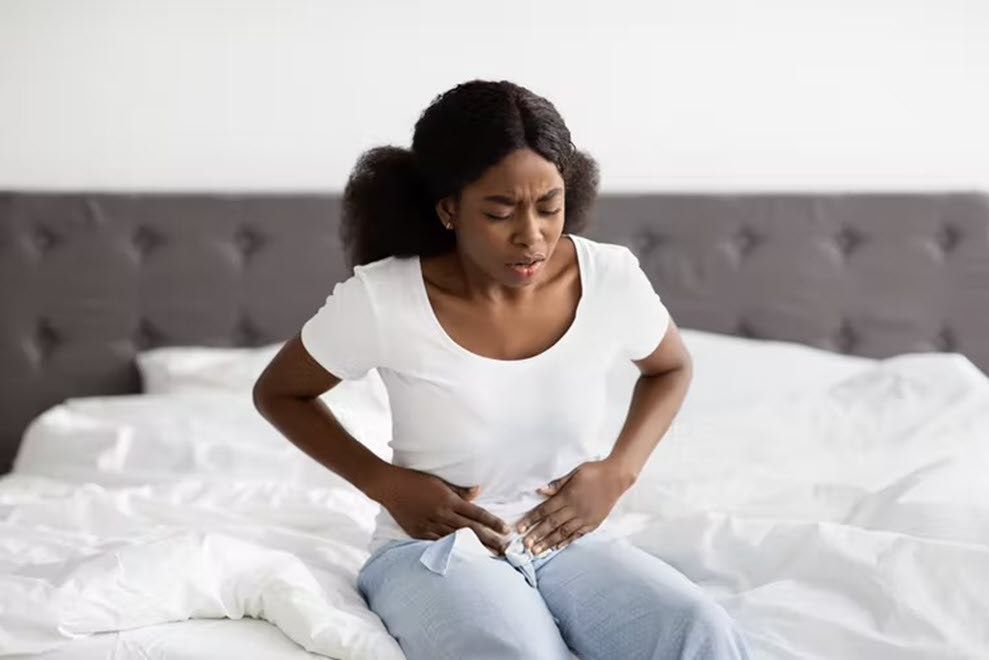
The Covid-19 pandemic has had a disproportionate and devastating impact on women’s health, according to a report from the Royal College of Obstetricians and Gynaecologists.
The report found that more than half a million women in the U.K. have been forced to wait for “non-urgent” gynecological care. Waiting lists across the country are now 60 percent longer than pre-pandemic levels. This means that one in 20 women will now be waiting more than a year to receive gynecological surgery, specialist treatments, and even diagnoses.
Some of those hardest hit by these delays are women with endometriosis, the chronic inflammatory condition characterized by tissue similar to the womb lining growing elsewhere in the body — in places such as the ovaries or fallopian tubes. An estimated one in ten women has the condition, many of which live with excruciating pain.
If left untreated or poorly managed, the condition can worsen. This can make it far more challenging to treat and may have a long-lasting impact on the woman’s health — such as causing fertility problems or worsened pain.
According to the report, the pandemic made it difficult for women with endometriosis to manage their condition and access the kind of specialist treatment they needed. For example, many women experiencing pain caused by endometriosis had to attend A&E for care because specialist care wasn’t available. And after this, many were referred to gynecology services, which meant waiting up to five months for an appointment.
For others, delays to care — such as surgeries to manage the condition — meant that not only did their pain worsen, but the disease also progressed. This can have a serious effect on many aspects of a woman’s life, including their mental health and fertility. Some will also require more complex and invasive surgeries to manage their condition as a result.

Being unable to get the care they needed to manage their pain effectively left many women feeling isolated and unable to go about their normal life. Poor mental health was already a problem for women with endometriosis even before the pandemic. But more than 80 percent of women surveyed as part of the report said their mental health worsened during the pandemic, largely because of their pain but, not uncommonly, also because they felt they were being dismissed.
Looking forward
Gynecology services are one of the surgical specialties worst hit by Covid-19 backlogs. Part of this is because, early in the pandemic, around half of gynecology consultants were redeployed to obstetric care services.
Even with things slowly returning to how they were pre-pandemic, it’s likely that the backlog for gynecology services won’t decrease until 2025. Given women with endometriosis already wait eight years on average for the right diagnosis, this could make it even more difficult for these women to access care moving forward.
This is why it will be important to begin prioritizing gynecological services and treat them with the same level of urgency as other services, such as cancer or rheumatology services. To start, it is important to raise general awareness of the condition and its symptoms and provide education to women on the disease and how to describe it. In combination with community services, such as your GP, this will ensure that women can still get support even while they wait for specialist care.
It will be some time before waiting times for gynecological services to return to normal. But if you’re one of the many women with endometriosis waiting for treatment or a diagnosis, there are some things you can do to prepare for your next appointment.
For example, tracking and recording your symptoms may be useful when visiting a GP so that you can illustrate what type of pain you’re experiencing and how often. This may aid the communication of your pain, so your GP can better understand your symptoms and how best to treat them while you wait for specialist care.
If you or someone you know is having a difficult time managing the condition, Endometriosis UK also offers support through a volunteer-run helpline led by people who know what you’re going through.
This article was originally published on The Conversation by Danielle Perro and Christian Becker at the University of Oxford. Read the original article here.







